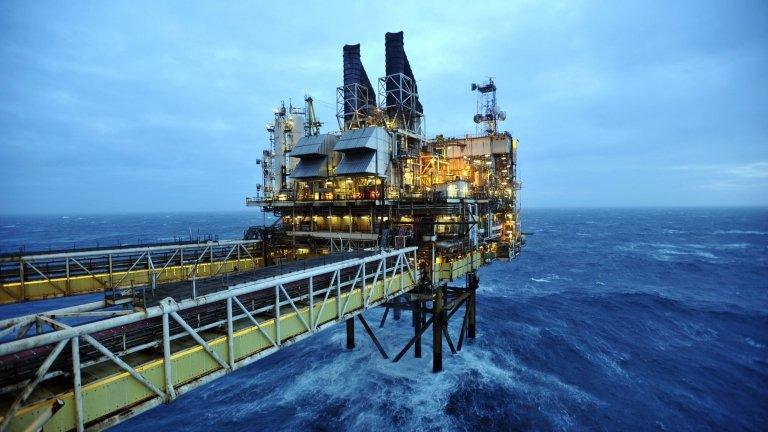Oil and gas investment 'collapsing' despite cost-cutting
- Published
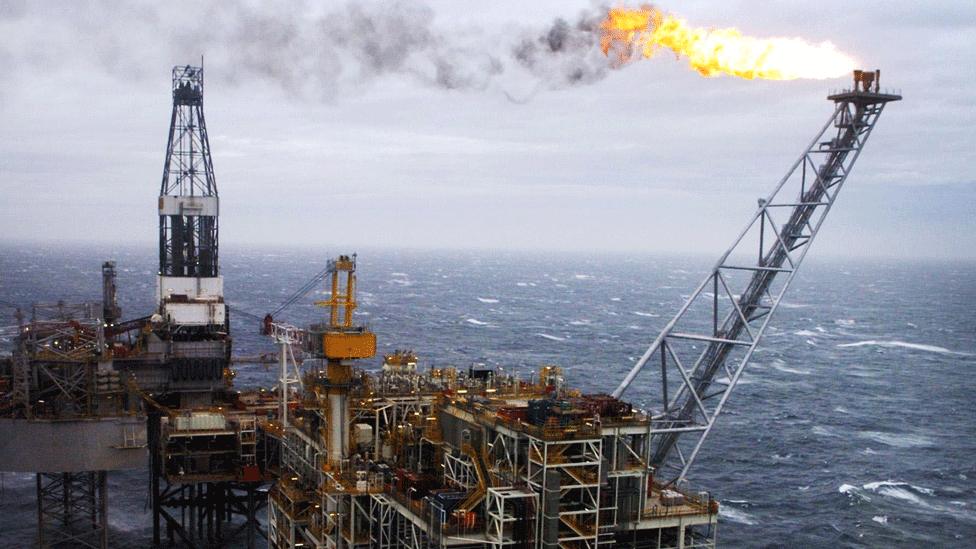
The North Sea industry has struggled amid low oil prices
Investment in new offshore oil and gas projects is collapsing despite cost-cutting efforts, according to a report.
Industry Body Oil and Gas UK said that less than £1bn was expected to be spent on new projects this year, compared to a typical £8bn per year in the last five years.
Its new 2016 activity survey said this was despite costs dropping.
Oil and Gas UK said exploration remained at an all-time low with no sign of improving.
The survey said the industry's drive to improve efficiency, reduce operating costs and increase production has had "marked success".
'Coherent approach'
And success per exploration well drilled in 2015 was the highest for 10 years,
However, the industry body warned if the oil price remains at about $30 for the rest of 2016, more than 40% of all UK Continental Shelf (UKCS) oil fields were likely to be operating at a loss - deterring further exploration and investment.
The number of fields expected to cease production between 2015 and 2020 has risen by a fifth to more than 100.

Deirdre Michie said there was a "huge task" ahead
Deirdre Michie, Oil and Gas UK's chief executive, said: "The UKCS is entering a phase of 'super maturity'.
"While the industry's decades of experience provide great depths of knowledge and expertise which can be applied to recover the still significant remaining resource, the report highlights the challenges that the falling oil price poses in our capability to maximise economic recovery of the UK's offshore oil and gas.
"The basin has to compete fiercely in the global market to attract price-constrained capital to the UK.
"A coherent approach by the industry, regulator and government will be critical to boost the industry's competitiveness and its investors' confidence.
"Together we need to transform the basin into a highly competitive, low tax, high activity province, which is attractive to a variety of operators and sustains and supports the important supply chain based here."
She added: "We have a huge task ahead but the prize is worth fighting for."
'As tough as it gets'
Oil industry veteran Sir Ian Wood acknowledged the current downturn was "probably as tough as it gets" but said it was "completely wrong" to think that the North Sea oil industry was finished.
He told the BBC's Good Morning Scotland programme: "We produce about 44 billion barrels and there is a view that there could be another 20 billion to come, so it's almost a third still to come.
"I think that's a bit high but it could be 15 to 16 billion barrels to come, so there's a huge prize out there and it's quite wrong to think that the North Sea is finished. The North Sea will recover.
"I'm prepared to guarantee in the next four or five years we won't perhaps be back to where we were but we will be back to a pretty active, strong industry with a lot of prospects ahead of it."

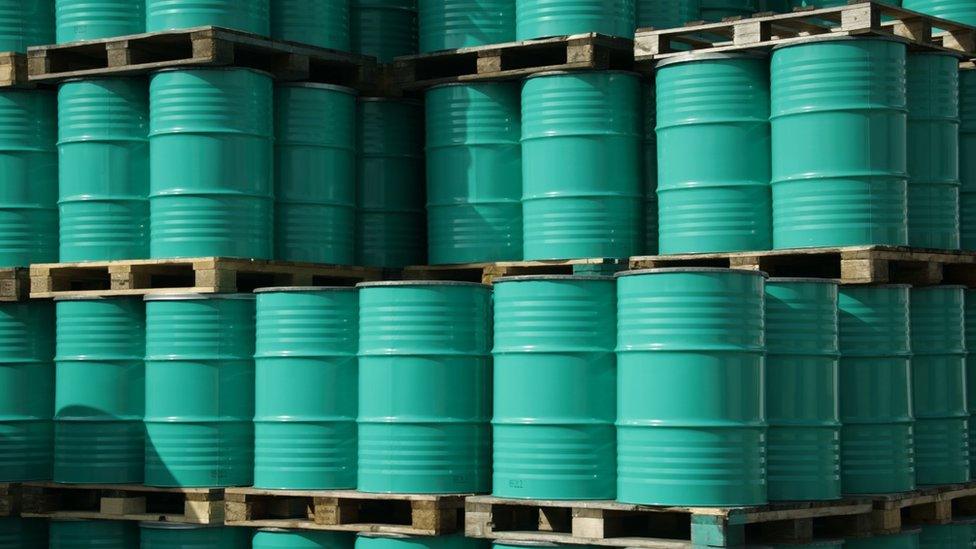
Analysis by Business/economy editor Douglas Fraser
There are pleasant surprises for Britain's oil and gas industry from its annual activity survey.
1 Output increased by nearly 10% last year - far more than expected, and after steep declines in recent years. It's expected to rise another 2.3% this year.
2 More than half of exploration wells were successful in 2015 - the best hit rate for 10 years, and with bigger finds than in the previous three years.
3 Cost-cutting was ahead of plan. Whereas falling production and 10% annual inflation for four years had driven up the cost per barrel extracted, the reverse was true with rising production and a sharp cut in industry pricing.
For instance, the cost of the average exploration well fell from £44m to £30m in only one year.
The average cost of producing a barrel of oil from British waters is on track to fall by 42% in only two years.
There. That upbeat list didn't take long. The unpleasant bits for the industry are somewhat less surprising, and the list is rather longer.
Read more from Douglas here

A UK government spokesperson said: "This government is clear that the broad shoulders of the UK are 100% behind our oil and gas industry and the thousands of workers and families it supports.
"We have established the Oil and Gas Authority to drive greater collaboration and productivity within industry, and announced a radical £1.3bn package of tax measures in the March 2015 Budget to ensure the UKCS remains an attractive destination for investment and safeguard the future of this vital national asset.
"In January this year we announced a further package of measures including another £20m funding for a further round of seismic surveys, and our strategy to maximise economic recovery of the UKCS.
"We look forward to the industry capitalising on this, to deliver efficiencies and make the industry more robust now and for the future."
'Barrier to investment'
A Scottish government spokesman said: "The North Sea still holds significant potential but this report highlights that further action is needed to encourage investment. Maximising economic recovery from our oil and gas resources will require the appropriate business conditions for investment in exploration, appraisal and development.
"The Scottish government will continue to do all that we can to support the sector. It is clear, however, that the UK government must take urgent action to substantially reduce the headline rate of tax at the March Budget and incentivise exploration. The fiscal regime must not be a barrier to investment and activity in the North Sea."
Scottish Labour's energy spokesperson Lewis Macdonald said: "It's unlikely that the North Sea will ever produce the billions in tax revenues it did at its peak, and government has to recognise its importance to jobs and the economy is much greater than its future role as a source of government tax revenues."
Tommy Campbell, from the Unite union, said "the worst may still be yet to come".
He said: "It's too late for tens of thousands of workers across the oil and gas sector who have already lost their livelihoods but tens of thousands more are reliant on the next steps of our political leaders and they are desperately looking for commitments and common purpose."
Lang Banks, from environmental campaigners WWF Scotland, said the report underlined the need for a new approach to North Sea oil and gas.
He said: "Given the urgent need to address climate change and wean ourselves off of fossil fuels, knee-jerk tax cuts are not the solution to securing a sustainable future of oil and gas workers and the communities that depend upon them."
Last month, a report by accountancy firm Moore Stephens blamed plunging oil prices for a sharp rise in the number of UK oil and gas companies going bust.
The Scottish and UK governments recently unveiled details of a £250m "City Deal" for Aberdeen, which will see them jointly invest in the area.
Separately, the Scottish government promised an extra £254m of investment in key infrastructure projects in Aberdeen and Aberdeenshire.
- Published23 February 2016
- Published10 February 2016
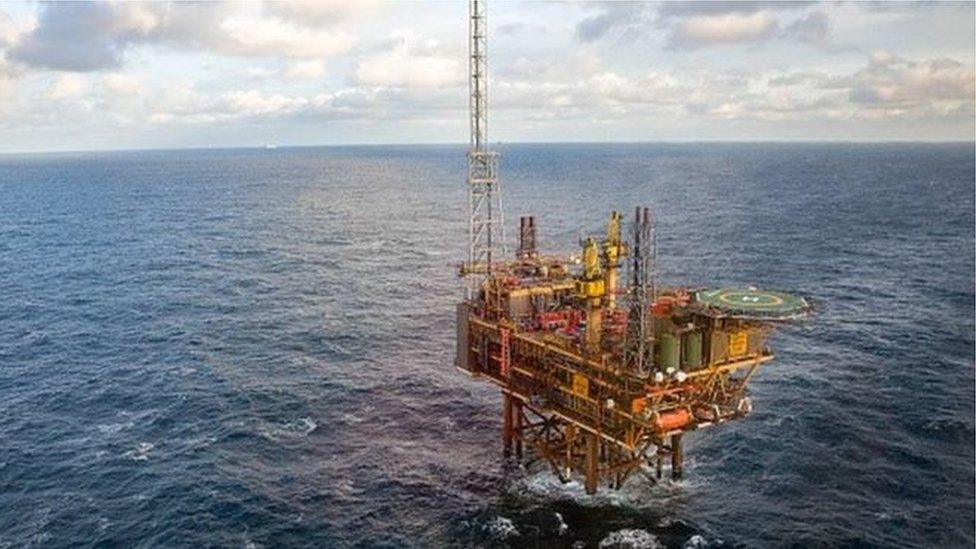
- Published25 January 2016
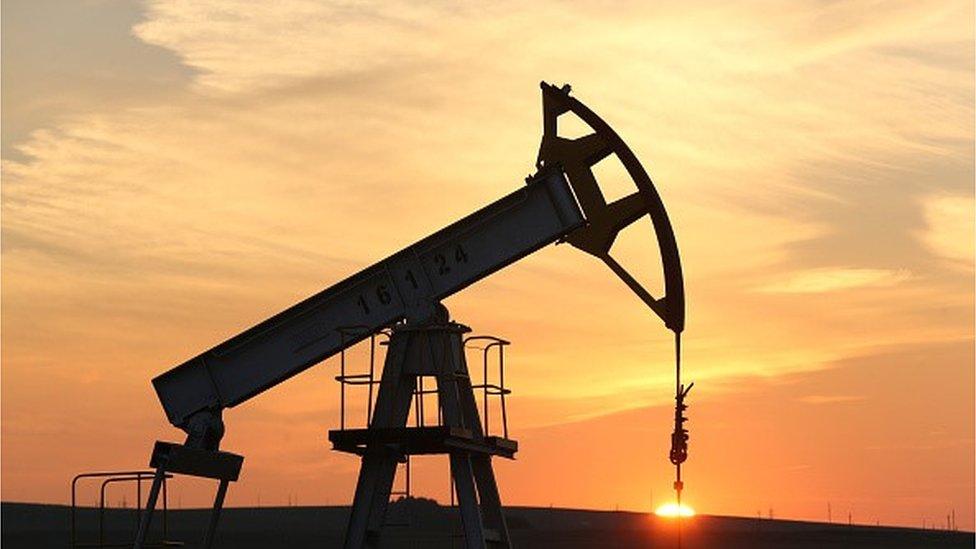
- Published22 January 2016

- Published22 January 2016

- Published24 February 2015
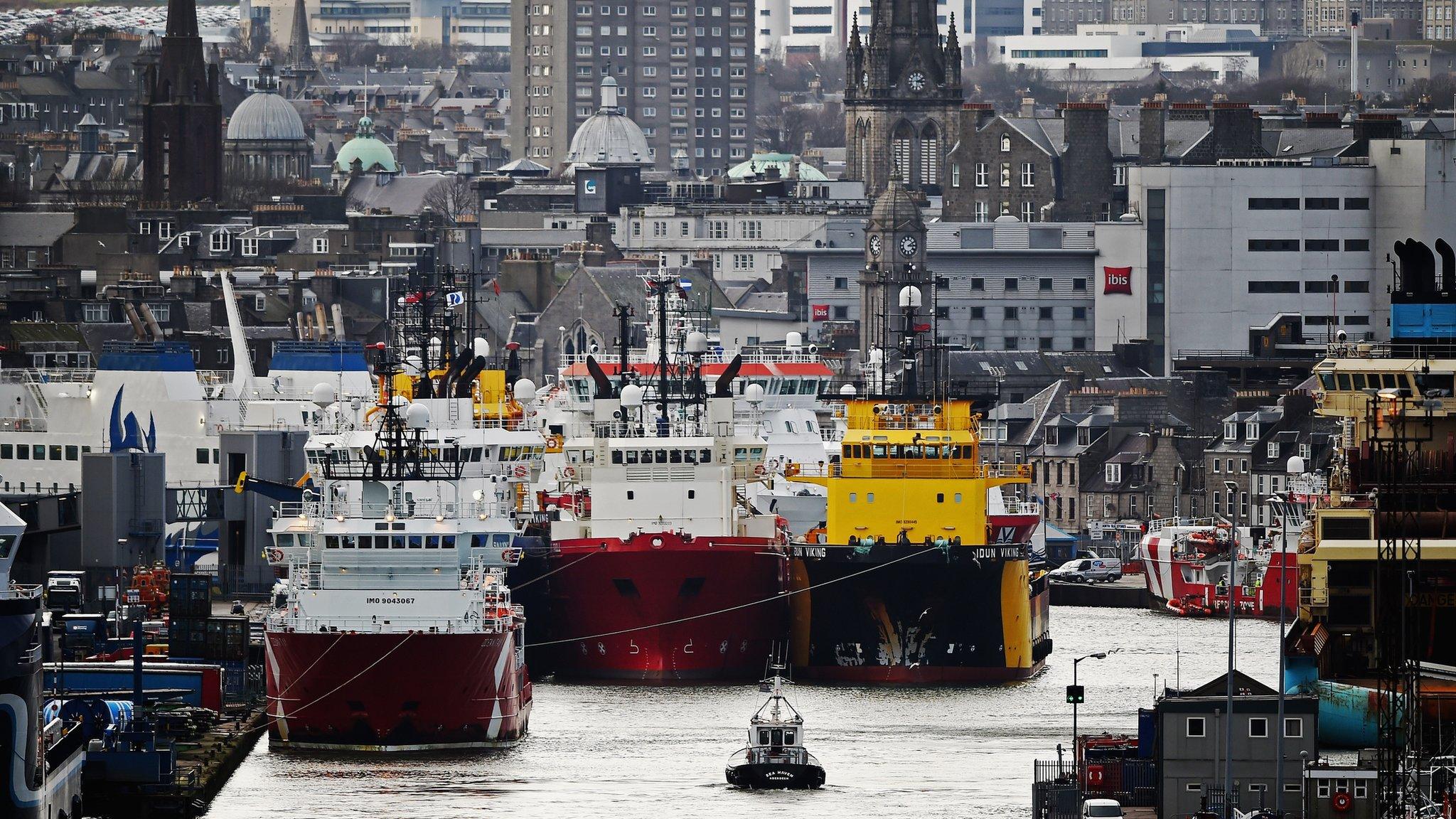
- Published25 February 2014
